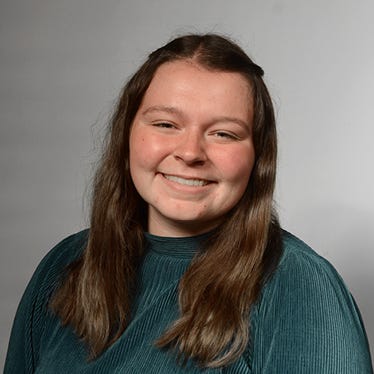April 30, 2024

The pandemic drew attention to gaps in the meat processing industry, which led to a string of new processing facilities being created. However, This Old Farm Meats and Processing in Colfax, Ind., recognized those gaps and challenges long before the pandemic.
Jessica Roosa opened This Old Farm Meats and Processing 14 years ago. She and her husband, Lucas Roosa, have since worked to grow the business while still prioritizing small livestock operations. They want to create a reliable outlet for producers who may find difficulty booking dates with smaller processing facilities.
“I’m passionate about the small farmer getting their product to market,” Jessica adds.
Managing growing pains
Keeping that focus on the small farmer has not wavered as the business continues to grow. However, in an industry that exists on high volume, according to Jessica, it can be challenging to stay small and local. The Roosas have tackled those challenges head-on as they find their footing in this small-meat-processor market while continuing to expand capacity.
Capacity at This Old Farm today is 25 head of beef per day and up to 75 hogs per day. The couple is planning to expand to accommodate 50 head of cattle per day, and eventually 100 per day. Additionally, they’d like to expand their hog numbers to maintain a 3-to-1 ratio of hogs to cattle.
“When somebody says it can’t be done, I say it can’t be done yet, but we’ll figure out how we can,” Jessica says.
Part of figuring things out has been applying for various grants and awards, including the Local Meat Capacity Grant through USDA. The Roosas are currently waiting on decisions for that grant, but they are hoping to move the processing space to a different building at the facility so they can create more hanging space.
Out-of-state producers welcome
This Old Farm has attracted producers from several surrounding states and beyond who are looking for a processor that will accommodate their smaller operations. Cliff McConville, Dundee, Ill., says he is impressed by how attentive Jessica and her team are to his needs. A unique practice implemented at This Old Farm that McConville is grateful for is assigning someone to work directly with a producer.
“Something that they’ve done differently is that we have an account representative,” McConville adds. “That’s been helpful to have somebody who will work with us.”
He appreciates their attention to detail, which shines through on their packaging, he says. McConville says this is the only processor he has worked with that will allow him to include “100% grass-fed beef” on his packaging. He’s also impressed with the options for value-added products, such as beef bacon, snack sticks and sausage. He knows his assigned account representative is helping him maximize cuts and will address any issues that arise.
“It’s been good for us,” McConville says. “They’re one of the few processors that focuses on market farmers like us.”

SMALL DETAILS: Browsing through the packaged meats at This Old Farm Meats and Processing shows just a sampling of the details included on their labels. Their attention to detail is appreciated by the farmers who work with them.
The work extends beyond the butcher shop. Lucas adds that they hold classes for producers, where they cover topics like marketing your product, grading and business plans. He says they are always open to working with new producers, and they want to act as a support system.
“We’re not afraid of the work that needs done,” Lucas says.
About the Author(s)
You May Also Like






